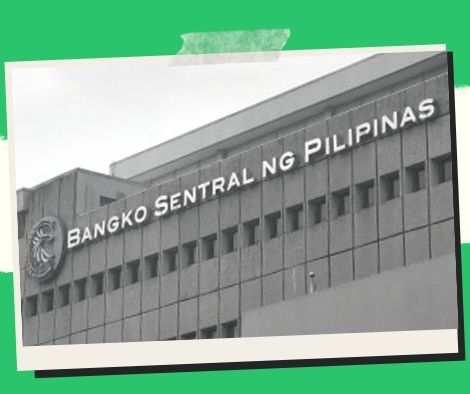
Inflation in 2022 is expected to be within target, according to the BSP’s chief.
Despite a higher-than-target print in 2021 and a number of upside risks such as supply-side pressures and rising global commodity prices, monetary policymakers are confident that inflation will remain within target this year.
Governor Benjamin Diokno of the Bangko Sentral ng Pilipinas (BSP) blamed high inflation last year on supply restrictions on major food commodities like pork, as well as rising oil and energy prices, in an Open Letter to the President dated January 18 and made available to journalists on Tuesday.
Last year, the average rate of inflation was 4.5 percent.
“Continued and effective implementation of direct non-monetary measures and policy reforms to alleviate supply constraints is critical in keeping inflation within the target band,” Diokno added, “especially as risks to the inflation outlook appear to be marginal to the upside for 2022.”
However, he believes that the development of new Covid-19 (coronavirus disease 2019) strains will mitigate these dangers, delaying the relaxing of residual containment measures and dampening the prognosis for global and domestic economic growth.
“The inflation outlook, however, is subject to a considerable level of uncertainty given developments relating to the Covid-19 pandemic, which could affect domestic and external economic conditions going forward,” Diokno said, adding that while monetary authorities expect inflation to continue to decelerate to within-target levels, “the inflation outlook, however, is subject to a considerable level of uncertainty given developments relating to the Covid-19 pandemic, which could affect domestic and external economic conditions going forward.”
“However, we want to reassure the President and the Filipino people that the BSP is constantly monitoring the pandemic’s developments and difficulties to ensure that monetary policy remains consistent with its pricing and financial stability objectives,” he said.
When inflation exceeds the target band specified by economic managers, the BSP sends an Open Letter to the President.
This method is intended to “ensure accountability in circumstances where the BSP fails to meet (the) inflation target,” according to the BSP website.
In 2004, 2005, 2006, 2007, 2008, 2009, 2016, 2017, and 2019, Open Letters to the President were published.
The inter-agency Development Budget Coordination Committee (DBCC) determines and announces the inflation objective at least two years ahead of the target period, according to Diokno.
The inflation target for 2022-2024 has been established at 2 to 4%.
Food supply constraints, such as on pork due to the African swine fever (ASF) outbreak in Asia in 2018, as well as “existing regulatory, tariff, and technology constraints in the livestock and feed sector,” according to Diokno, were among the factors that contributed to last year’s high inflation rate.
Another issue, he said, is the rise in global oil prices following the rebound of world demand following a drop when the pandemic began in 2020 and the restraint of supply.
These variables, according to Diokno, were partially countered by the negative base effects of higher transportation charges in 2020, especially tricycle fares, when the government imposed movement restrictions.
“Demand-side pressures on inflation appear to be moderate, as evidenced by consistent core inflation data, reinforcing the judgment that inflation has been largely supply-driven,” he said.
He went on to say that core inflation, which excludes volatile food and oil commodities, is expected to be controllable in 2021, with an average of 3.3 percent year-on-year, which is unchanged from 3.2 percent in 2020.
According to Diokno, monetary authorities maintained the central bank’s key policy rates unchanged after reducing them by 200 basis points in 2020 due to supply-side issues causing increases in domestic inflation.
The BSP’s overnight reverse repurchase (RRP) rate is currently at a record low of 2%.
“Because monetary policy has a limited impact on cost-push forces,” Diokno explained, “the BSP tends to look past the initial impact of supply shocks.”
He stated that the central bank supports non-monetary actions and reforms to address supply-side limitations.
“Our inflation predictions indicate a reversion to the target range in 2022 and 2023, implying a moderate inflation outlook,” he added.
“Based on the BSP’s surveys of private sector economists and analysts,” Diokno stated, “inflation expectations have likewise remained firmly anchored to the target band.”
“Given these considerations and significant downside risks to domestic economic growth, as well as the lingering threat of new Covid-19 variants and infections,” he added, “the BSP has maintained an accommodative monetary policy stance to support the economy’s recovery while keeping an eye on potential price stability threats.”
Save/Share this story with QR CODE
Disclaimer
This article is for informational purposes only and does not constitute endorsement of any specific technologies or methodologies and financial advice or endorsement of any specific products or services.
 Need to get in touch?
Need to get in touch?

We appreciate your reading. 
1.) 

Your DONATION will be used to fund and maintain NEXTGENDAY.com
Subscribers in the Philippines can make donations to mobile number 0917 906 3081, thru GCash.
3.) 
4.) 
AFFILIATE PARTNERS

World Class Nutritional Supplements - Buy Highest Quality Products, Purest Most Healthy Ingredients, Direct to your Door! Up to 90% OFF.
Join LiveGood Today - A company created to satisfy the world's most demanding leaders and entrepreneurs, with the best compensation plan today.

 Business, Finance & Technology
Business, Finance & Technology

 Business Technology, Finance Technology & Information Technology
Business Technology, Finance Technology & Information Technology





